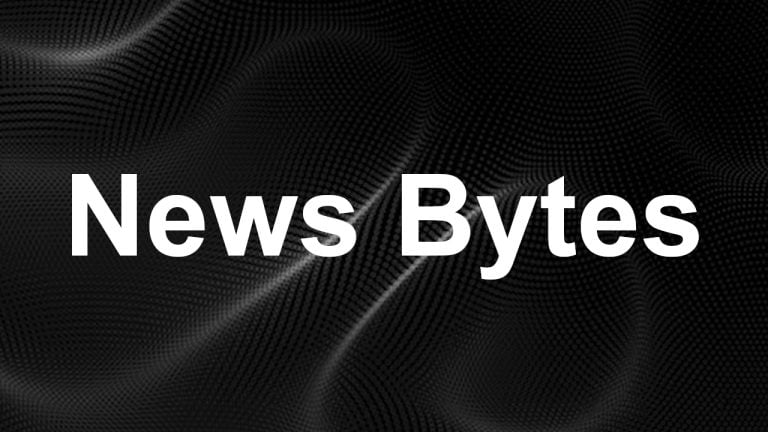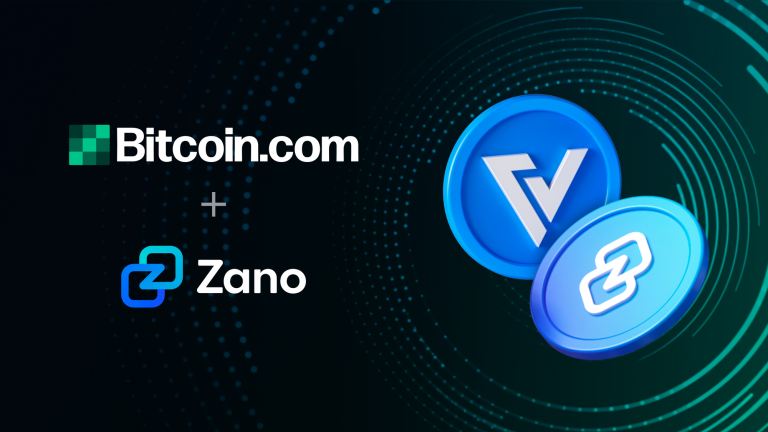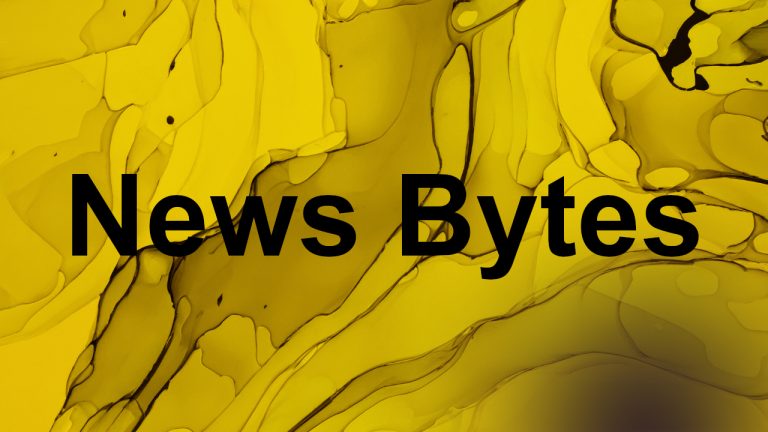All the best recent cryptocurrency news, one single place!
Binance Shifts $1 Billion in SAFU Bitcoin Reserves to USDC
 Binance, the leading cryptocurrency exchange globally in terms of trading volume, has shifted its SAFU (Secure Asset Fund for Users) reserves into the stablecoin USDC to bolster “its reliability.” During the early hours of Thursday, the platform transferred two substantial amounts of BTC and BNB. Binance Executes Dual Crypto Moves on Thursday: What’s Behind the […]
Binance, the leading cryptocurrency exchange globally in terms of trading volume, has shifted its SAFU (Secure Asset Fund for Users) reserves into the stablecoin USDC to bolster “its reliability.” During the early hours of Thursday, the platform transferred two substantial amounts of BTC and BNB. Binance Executes Dual Crypto Moves on Thursday: What’s Behind the […]Here’s What Would Happen If The Bitcoin Price Fell Below $58,000
Crypto analyst Crypto Rover has provided insights into what could happen if the Bitcoin price drops below $58,000. The flagship crypto has continued to suffer price declines lately and risks dropping to that price level if it manages to break the crucial $60,000 support level. What A Drop Below $58,000 Would Mean For The Bitcoin Price Rover mentioned in a video on his YouTube channel that Bitcoin dropping below $58,000 would mean a breakdown for the flagship crypto token. He, however, quickly added that there’s still a lot of liquidity in the market, which he believes Bitcoin can take in and help drive its price back above $60,000 if the drop below $58,000 happens. Related Reading: XRP Price Set For 3,000% Rally To $22, Analyst Predicts He sounded optimistic about Bitcoin’s quick recovery if it dropped below $58,000. He revealed that he would not close his positions but rather open millions of dollars long positions if the flagship crypto dropped between $57,000 and $60,000. Meanwhile, Crypto Rover revealed that Bitcoin is still in the middle of a “gigantic and enormous consolidation phase” and that Bitcoin will have a “massive breakout” when this consolidation period ends. For now, he highlighted that Bitcoin’s top side is still trending downwards while Bitcoin’s low side is trending upwards. Therefore, Crypto Rover claimed this is causing a “compression” in Bitcoin’s price. However, once this compression ends, Bitcoin will come out with a “banger,” the analyst added. Crypto Rover then alluded to the funding rates, which are currently negative. He noted that historically speaking, negative or low funding rates are always a Bitcoin buying opportunity. The Big Gains Are Yet To Come For BTC Crypto Rover also noted that the majority of Bitcoin’s gains always come after the Bitcoin halving and not before. As such, despite the crypto token rising to a new all-time high (ATH) before the halving, the analyst asserted that “what we have seen so far is nothing for what we are about to be getting.” Related Reading: XRP Whales Are On The Move Again, But Are They Bullish Or Bearish? He suggested that the halving event would be the catalyst for Bitcoin’s rise to $100,000, mainly because it would create more scarcity. This would undoubtedly help increase Bitcoin’s value, especially if its demand continues to skyrocket. However, such a price surge might not come immediately, considering that Bitcoin’s price tends to increase 6 to 12 months after the halving. Hannah Phung, a lead analyst at on-chain analytics platform SpotOnChain, also recently made that observation, although she admitted that things could be different this time around, as this market cycle looks to be more different and mature than past ones. At the time of writing, Bitcoin is trading at around $60.900, down almost 5% in the last 24 hours, according to data from CoinMarketCap. BTC price recovers above $62,000 | Source: BTCUSD on Tradingview.com Featured image from PYMNTS, chart from Tradingview.com
World Gold Council Sees Gold as Underowned, Forecasts Continued Rally
 The World Gold Council, an authority in global gold markets, expects the recent gold price rally to continue, supported by geopolitical risks, steady central bank purchases, and demand for coin and jewelry. The council also sees gold ETFs fueling a future rise in prices given their precious metal’s low ownership levels. World Gold Council Paints […]
The World Gold Council, an authority in global gold markets, expects the recent gold price rally to continue, supported by geopolitical risks, steady central bank purchases, and demand for coin and jewelry. The council also sees gold ETFs fueling a future rise in prices given their precious metal’s low ownership levels. World Gold Council Paints […]South Korean Inmate on Funeral Leave Robs Crypto Buyer of $363,000
 Local sources have reported that a South Korean inmate, temporarily released to attend a funeral, exploited a cryptocurrency over-the-counter (OTC) deal to rob another individual. He enticed the buyer by offering to sell the digital assets at a rate below the prevailing market value and stole 500 million won. Temporary Release Turns Criminal A face-to-face […]
Local sources have reported that a South Korean inmate, temporarily released to attend a funeral, exploited a cryptocurrency over-the-counter (OTC) deal to rob another individual. He enticed the buyer by offering to sell the digital assets at a rate below the prevailing market value and stole 500 million won. Temporary Release Turns Criminal A face-to-face […]Bitcoin To $455,000: Expert Echoes Previous Halving Pattern
In the ever-evolving world of cryptocurrency, Marcel Knobloch also known as Collin Brown, a crypto expert has offered an audacious prediction for Bitcoin, foreseeing a significant rally to unprecedented heights post-BTC Halving event scheduled to take happen this month. Bitcoin Poised For Massive Growth Post-Halving According to Collin Brown, the fourth mining reward Halving for Bitcoin will take place in the next 48 hours. This event will cut down the current 6.25 BTC per block output to 3.125 BTC per block. Related Reading: Bitcoin Halving Hysteria: Will History Repeat Itself Or Are We Heading For A Market Meltdown? Brown noted that following the last Halving event, Bitcoin witnessed over 700% growth, bringing the crypto asset to its previous all-time high of $69,000 achieved at the peak of the 2021 bull cycle. Given the impact of the previous Halving, the crypto expert has predicted the coin will reach $455,000 should BTC mirror this pattern. The post read: In just forty-eight hours, Bitcoin’s fourth mining reward halving will occur. This quadrennial occurrence will slash the per-block emission of BTC to 3.125 BTC from the current 6.25 BTC. After the last halving, Bitcoin prices surged 700%, which would now bring $455,000. It is worth noting that since the cryptic developer of Bitcoin, Satoshi Nakamoto, introduced the coin about 15 years ago, the Halving has been ingrained in the crypto’s program. This year’s event will happen when block 840,000 is created, which might increase BTC’s value by reducing supply. Historically, the three previous halvings have caused the price of the digital asset to soar significantly, amassing substantial gains. Data shared by Brown shows that following the first halving event, Bitcoin saw a whopping 9,360% rise, topping out around $1,135 from $12. However, it took the crypto asset approximately 371 days to reach the aforementioned figure after the Halving. Furthermore, the second halving, which occurred in 2016, drove Bitcoin’s price from $650 to $19,640, indicating an over 2,920% increase. Meanwhile, the last instance secured a 700% rally, taking prices from $8,626 to the previous peak of $69,045. Primarily, it took BTC more than 500 days in the preceding two cycles to reach new records. Considering the past trends, Brown’s forecast appears to be reasonable and possible. Should any of these trends reoccur, the crypto expert’s prediction might manifest in the following year. BTC On The Downside Collin Brown remains optimistic despite Bitcoin showing signs of weakness to retest its new all-time high of $73,000. Since reaching its new peak in mid-March, the value of BTC has plummeted by over 10%. Related Reading: Bitcoin Drops As Iran Launches Missile Attack On Israel – What We Know So Far Today, the price of Bitcoin fell sharply, reaching a low of about $60,000 and reaching its lowest level since late February. At the time of writing, BTC was trading at $62,916, down more than 10% over the past week. While its trading volume has increased by over 20%, its market cap is slightly down by 0.20% in the last day. The decline in BTC’s price is considered to be triggered by recent geopolitical tensions or global turmoil. The conflict between Israel and Iran caused major sell-offs among investors, leading to a broader market downturn. Featured image from iStock, chart from Tradingview.com
ceτi AI Acquires Big Energy Investments Inc. to Boost Its High-Performance Computing Capabilities in North America
 PRESS RELEASE. Vancouver, Canada — April 18th, 2024 – ceτi AI, a leader in decentralized artificial intelligence infrastructure, is pleased to announce its acquisition of Canadian company Big Energy Investments Inc., a firm specializing in strategic investment in high-performance computing infrastructure. This acquisition marks a significant first step in ceτi AI’s strategy to advance the […]
PRESS RELEASE. Vancouver, Canada — April 18th, 2024 – ceτi AI, a leader in decentralized artificial intelligence infrastructure, is pleased to announce its acquisition of Canadian company Big Energy Investments Inc., a firm specializing in strategic investment in high-performance computing infrastructure. This acquisition marks a significant first step in ceτi AI’s strategy to advance the […]Bitcoin to Hit $122,000 in 2024, Predicts Finder’s Latest Survey of Experts
 Periodically, the product comparison website finder.com releases a new price prediction survey focusing on key cryptocurrencies and gathers a wide array of crypto and fintech experts for their perspectives. According to the most recent report on bitcoin forecasts, the panel of experts anticipates that bitcoin could attain a value in the six-figure range by 2024. […]
Periodically, the product comparison website finder.com releases a new price prediction survey focusing on key cryptocurrencies and gathers a wide array of crypto and fintech experts for their perspectives. According to the most recent report on bitcoin forecasts, the panel of experts anticipates that bitcoin could attain a value in the six-figure range by 2024. […]Historical Data Sparks Excitement: VeChain Price Poised For A Bullish Breakout?
In the rollercoaster ride of the crypto market, VeChain (VET) has managed to keep its head above water, showcasing resilience where many others falter. Related Reading: All Quiet On The Bitcoin ETF Front – Should You Be Paranoid? VeChain Analysts Take Notice Crypto analysts are keeping tabs on VeChain, with some seeing a potential bright future ahead. Sure, there’s been talk about VeChain’s performance since 2021, and it’s had its share of rough patches. But folks like Crypto EA reckon that VeChain has been pushing through, expanding its network and staying in the game despite the challenges. Weathering The Storm Despite the ups and downs of the market, VeChain’s current price stands at $0.039, with a decent trading volume of $124 million in the past 24 hours and a market cap of $2.90 billion. While it’s not skyrocketing, the fact that VeChain has seen a 1.50% increase in price in the face of a downturn speaks volumes about its stability. VET market cap currently at $2.8 billion. Chart: TradingView.com Reading The Tea Leaves One analyst, Ali Martinez, has been examining VeChain’s past to make sense of its present and future. Martinez points out some interesting similarities in VeChain’s price movements in 2020, suggesting that history might repeat itself. According to Martinez, VeChain could be due for a pullback towards $0.032 before potentially gearing up for a bullish run. #VeChain seems to mirror its price movements from June to December 2020. If this pattern holds, $VET might pull back to the channel’s upper boundary at $0.032, potentially setting the stage for a continued bull run! pic.twitter.com/PVkpJZXW34 — Ali (@ali_charts) April 16, 2024 Bright Future Ahead For VET? Other experts, such as Clifton Fx and World of Charts recently predicted a promising future for VET. The former insisted that the coin’s value may increase to $0.06 in the near future, while the latter predicted it might hit $0.22 this summer. Good Morning ☕️#Vechain $Vet 1d Approaching $1 💪🚀 https://t.co/lC93xLRuEE pic.twitter.com/pic7N1WvvW — FLASH (@THEFLASHTRADING) April 11, 2024 Flash made the most bullish prognosis, claiming that VET is going to rise by 2,500% to reach an all-time high of $1. Investors Keep A Watchful Eye On Dips Meanwhile, with the market mood swinging towards optimism, analysts are advising investors to play the waiting game. They suggest keeping an eye out for price dips and being patient. Some even think this could be the calm before the storm, predicting that VeChain might be gearing up for some serious gains in the future. Related Reading: Shiba Inu Open Interest Explodes On Top Exchanges – Is This The Comeback? In the end, VeChain’s ability to stay afloat in choppy waters hasn’t gone unnoticed. While it may not be the flashiest player in the crypto world, its steady performance is starting to turn heads. Featured image from Yahoo Finance, chart from TradingView
Here’s The Bitcoin Whale Who Dumped $1 Billion In BTC On Binance
Bitcoin has seen its price suffer from the tremendous selling pressure that has filled the market over the last few weeks. However, as investors hope for relief, it seems that the sellers are far from done, with one notable Bitcoin sell transaction in particular sending the market into a frenzy. Whale Dumps $1 Billion Worth Of Bitcoin Whale tracker Whale Alert took to X (formerly Twitter) to inform the crypto community of a large Bitcoin transaction that was participating in the sell-off. The transaction was carrying a total of 16,276 BTC which was worth around $1 billion at the time that the transaction was carried out. Related Reading: XRP Whales Are On The Move Again, But Are They Bullish Or Bearish? While large transactions are not out of the ordinary, their destination is often the determinant of whether it is a bearish or bullish transaction. In cases where the coins are headed away from centralized exchanges and into personal wallets, it can be bullish because this often means that the investors are consolidating their coins into personal private storage and don’t plan on selling. However, in cases where coins are being transferred to centralized exchanges, it can be very bearish since it often means that investors are looking to sell their coins. This was the case with the $1 billion Bitcoin transaction, as the 16,276 BTC were transferred to the Binance exchange. Naturally, the transaction caused a stir among investors who contemplated the impact that such a large sell-off could have on the price of the cryptocurrency. However, the origin of the transaction would be revealed soon after, and prices would stabilize as a result. Binance Says 16,276 BTC Transaction Was SAFU Fund Conversion In the early hours of Thursday, Binance, the largest crypto exchange in the world, took responsibility for the 16,276 BTC transaction that was sent to the exchange. The funds were reportedly from its emergency insurance fund known as the Secure Asset Fund for Users (SAFU) fund. Related Reading: Crypto Analyst Says Don’t Buy Altcoins Just Yet – Here’s Why According to the announcement, the exchange is converting this insurance fund into stable coins to avoid fluctuations in price associated with Bitcoin. Binance explains that it maintains the balance of this fund at $1 billion, which represents an ample level that is enough to safeguard user funds on the exchange. As to why the exchange chose USDC as its stablecoin of choice, it said, “Making use of a trusted, audited, and transparent stablecoin for SAFU further enhances its reliability and ensures it remains stable at $1B.” The Bitcoin has since been converted to USDC, and the SAFU wallet maintains a balance of 1 billion USDC. BTC price stages another recovery | Source: BTCUSD on Tradingview.com Featured image from Bitcoin News, chart from Tradingview.com
Crypto Trader Predicts Next 100x Opportunity After 170x And 520x Wins
One of the crypto community’s most notable traders at the moment, Ansem (@blknoiz06), has recently ignited interest with his latest prediction, claiming another potential 100x opportunity. This time, his focus is on a new development on the Bitcoin network, which he believes is currently undervalued by the market. Ansem stated via X: Next 100x opp is runes on Bitcoin, 95% of CT is not paying attention to this at all compare volumes on Solana memecoins to current unisat volume & consider the wealth effect if Bitcoiners have their own native altcoins to buy provenance will b v imp here also imo. An In-depth Analysis Of Ansem’s Successes Lookonchain, a reputable on-chain analysis firm, provided an exhaustive look at Ansem’s latest trading history and strategy. Their analysis reveals a pattern of early investments in nascent cryptocurrencies that later became highly lucrative. Ansem(@blknoiz06) – the best crypto trader who: 170x on $SOL 520x on $WIF 80x on $BONK Yesterday, he tweeted that the next 100x opp is runes on Bitcoin. 1/ 🧵Let’s dig into his trading strategy. pic.twitter.com/vN2N2Aekbz — Lookonchain (@lookonchain) April 17, 2024 On January 1, 2021, Ansem invested in Solana when it was priced at just $1.5. By November of the same year, the value of Solana had skyrocketed to $260, a return that significantly outpaced market expectations, netting a gain of over 170x. Ansem’s acute sense of market potential was again on display with his investments in WIF and BONK. His tweet on December 12, 2023, suggesting that WIF had potential similar to SHIB (Shiba Inu), preceded a massive surge in WIF’s value from $0.09 to $4.85. Related Reading: Crypto Analyst Unveils Top 10 BTCfi Altcoins Post-Halving Similarly, his endorsement of BONK led to an impressive 80x increase in its price. “On October 30, 2023, Ansem tweeted ‘bonk great coin’, and then BONK skyrocketed! 4 months later, BONK exceeded $0.000047,” the firm stated. Lookonchain further highlighted, “Ansem combines a strategic allocation of 70% in long-term holdings with 30% dedicated to short-term, speculative trades. This balanced approach helps mitigate risk while capitalizing on high-return opportunities. His success is a testament to his deep market insights, disciplined investment strategy, and timely execution.” How To Follow The Crypto Traders’ Prediction In response, prominent crypto analyst Cyclop (@nobrainflip), who boasts 346,000 followers, analyzed Ansem’s current prediction. He explained that the hype revolves around a newly developed protocol named Runes, created by the inventor of Ordinals, Rodarmor. Runes allows for the issuance of fungible tokens directly on the Bitcoin network, operating as a more integrated alternative to the BRC-20 protocol. Related Reading: Crypto Exchanges Bitcoin Supply Can Only Last For 9 Months, ByBit Report Unlike BRC-20, which follows an account model akin to Ethereum’s, Runes utilizes Bitcoin’s UTXO (Unspent Transaction Output) model, potentially offering a more seamless integration with Bitcoin’s existing infrastructure. Notably, Runes are not just an alternative; they aim to replace the BRC-20 entirely. The protocol charges fees in BTC for creating tokens and is set to launch on Bitcoin’s halving day, April 19. The development of the Runes ecosystem is gaining traction, with various projects, tools, and platforms beginning to emerge. With the anticipated launch of Runes scheduled for Bitcoin’s next halving day on April 19, the ecosystem around this new protocol is quickly developing. A variety of projects are already preparing to utilize Runes, with tools, launchpads, and other resources being actively developed. The most notable, according to cyclop, are: Runecoin (RSIC): This project allows users to mine tokens in anticipation of the Runes launch. It has already distributed a 21,000 RSIC miner airdrop to over 9,000 wallets that hold Ordinal collections. Runes Terminal (RUNI): Aimed at developers, this platform is creating a test environment for Bitcoin applications that will utilize the Runes Protocol, facilitating innovation and simplification in the transition to new applications on the Bitcoin network. Pups Token (PUPS): With a pre-mint supply of 10 million tokens, this project plans an airdrop for holders of Rune Pup ordinals, who can also participate in token-burning events to reduce supply and potentially increase value. The crypto analyst also advised that the hype around Runes is just starting. The “Ordinals community has spurred numerous projects to offer Runes airdrops. Thanks to Magic Eden, a new tab now conveniently lists all collections confirmed to distribute Runes to holders in one place.” At press time, PUPS traded at $48.96, down 68% from its all-time high. Featured image created with DALL·E, chart from TradingView.com
Eigenlayer Launches on Ethereum Amid Concerns Over Centralization and Potential Security Threats
 Eigenlayer launched on Ethereum’s mainnet with over $12 billion in total value locked, aiming to create a restaking ecosystem which, while promising lucrative prospects, may introduce unforeseen risks including potential centralization and the threat of slashing cascades impacting Ethereum’s security. The launch was executed with certain safeguards, such as the temporary disabling of slashing and […]
Eigenlayer launched on Ethereum’s mainnet with over $12 billion in total value locked, aiming to create a restaking ecosystem which, while promising lucrative prospects, may introduce unforeseen risks including potential centralization and the threat of slashing cascades impacting Ethereum’s security. The launch was executed with certain safeguards, such as the temporary disabling of slashing and […]Bitcoin Miners Remain Optimistic About Future Despite Anticipated Revenue Loss
 Although Bitcoin’s halving is expected to result in reduced block rewards for miners, several CEOs of bitcoin mining firms maintain a bullish outlook. In addition to investing in more efficient equipment, miners believe spot bitcoin exchange-traded funds (ETFs) will continue to drive up the value of the cryptocurrency. Bitcoin Halving to Cost Miners Billions in […]
Although Bitcoin’s halving is expected to result in reduced block rewards for miners, several CEOs of bitcoin mining firms maintain a bullish outlook. In addition to investing in more efficient equipment, miners believe spot bitcoin exchange-traded funds (ETFs) will continue to drive up the value of the cryptocurrency. Bitcoin Halving to Cost Miners Billions in […]Privacy Token ZANO Now on Bitcoin.Com’s Verse DEX, Coming Soon to Bitcoin.com Wallet App
 Integration signals a new era of privacy-focused digital transactions in the world’s leading self-custody cryptocurrency solution Dubai, UAE – Bitcoin.com’s decentralized exchange Verse DEX has launched a new liquidity pool, wZANO-USDT. This is a first step towards integrating the privacy-focused ZANO token to the broader Bitcoin.com ecosystem. Support for ZANO is coming soon to the […]
Integration signals a new era of privacy-focused digital transactions in the world’s leading self-custody cryptocurrency solution Dubai, UAE – Bitcoin.com’s decentralized exchange Verse DEX has launched a new liquidity pool, wZANO-USDT. This is a first step towards integrating the privacy-focused ZANO token to the broader Bitcoin.com ecosystem. Support for ZANO is coming soon to the […]All Quiet On The Bitcoin ETF Front – Should You Be Paranoid?
The recent approval and launch of spot Bitcoin ETFs have brought about notable changes in market dynamics. Among the most significant players affected is Grayscale, a leading institution in the crypto space. Related Reading: Shiba Inu Open Interest Explodes On Top Exchanges – Is This The Comeback? Grayscale’s Bitcoin Holdings Experience Decline Grayscale, known for its Bitcoin Trust (GBTC), held the highest BTC market capitalization among institutions. However, an in-depth analysis reveals a decline in its Bitcoin holdings over recent months. From nearly 620,000 BTC in January, Grayscale’s holdings have dwindled to a little over 300,000 BTC at the time of reporting. This decline raises questions about the factors influencing institutional investment strategies in the crypto sector. Spot Bitcoin ETFs Witness Fluctuating Flows Following the launch of spot Bitcoin ETFs, the market has witnessed fluctuating flows across various platforms. While certain ETFs have experienced significant volume, others have recorded zero flows, indicating a mixed response from investors. BlackRock’s IBIT and Grayscale’s GBTC have been among the few to register notable flows, with both inflows and outflows observed in recent days. Source: Coinglass A closer look at the data reveals consecutive outflows in Bitcoin spot ETFs over the past few days, reminiscent of similar trends observed in March. On the 15th and 16th of April, outflows amounted to nearly $27 million and $58 million, respectively. Despite these outflows, analysts point out that such fluctuations are not uncommon in the ETF market and may not necessarily indicate product failure. Analysis Of Flow Patterns Provides Insight Examining specific flow patterns offers valuable insights into investor behavior and market sentiment. While Grayscale’s GBTC experienced consecutive outflows, BlackRock’s IBIT saw inflows on certain days. This variance underscores the diverse strategies adopted by investors in response to the evolving crypto landscape. Bitcoin market cap currently at $1.2 trillion. Chart: TradingView.com It’s important to note that zero inflows on certain days are considered normal for ETFs, according to analysts. They emphasized that such occurrences are commonplace across various ETFs and should not be interpreted as a sign of product failure. Instead, they reflect the ebb and flow of investor interest in a rapidly evolving market. Future Outlook For Bitcoin ETFs As Bitcoin ETFs continue to gain traction, the market is poised for further evolution. While some platforms may experience fluctuations in flows, the overall trajectory of institutional investment in the crypto sector remains optimistic. Related Reading: Whale Alert: MATIC Poised For Epic Surge – Time To Dive In? The approval and launch of spot Bitcoin ETFs have sparked shifts in market dynamics, impacting institutions like Grayscale and prompting fluctuations in ETF flows. Despite the volatility, analysts remain optimistic about the long-term prospects of Bitcoin ETFs and their role in shaping the future of finance. Featured image from DataDrivenInvestor, chart from TradingView
Binance Set to Re-Enter Indian Market With $2 Million Fine Settlement
 Binance and nine other foreign crypto exchanges were originally blocked in India due to non-compliance with the country’s Anti-Money Laundering (AML) regulations, but Binance is set to return after a four-month absence by paying a $2-million fine, according to The Economic Times. The Indian Financial Intelligence Unit (FIU) mandated that foreign crypto exchanges, including Binance, […]
Binance and nine other foreign crypto exchanges were originally blocked in India due to non-compliance with the country’s Anti-Money Laundering (AML) regulations, but Binance is set to return after a four-month absence by paying a $2-million fine, according to The Economic Times. The Indian Financial Intelligence Unit (FIU) mandated that foreign crypto exchanges, including Binance, […]